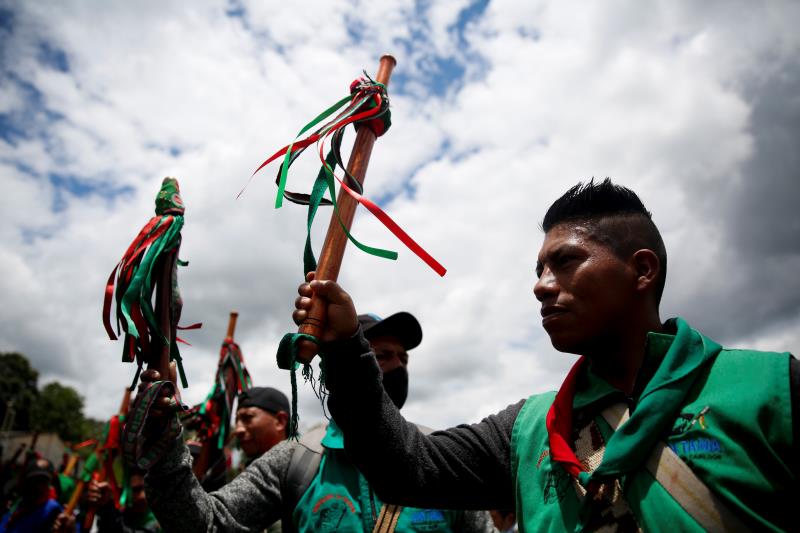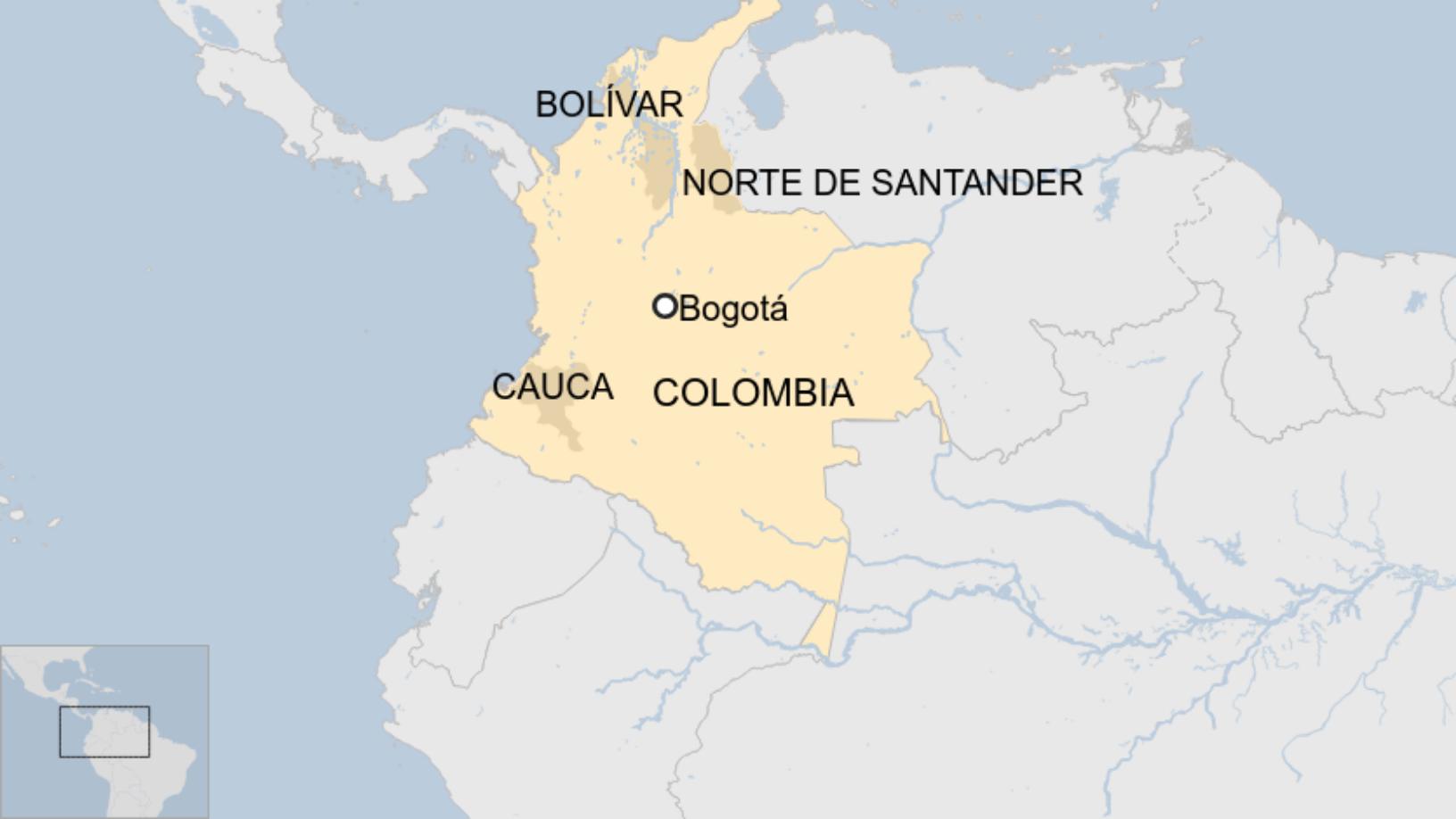RIO DE JANEIRO, BRAZIL – The murder of an indigenous governor of the Colombian department of Cauca has once again set off alarm bells about violence in that region, where more than a third of the 836 victims of socio-political violence in Colombia in 2020 lived, an academic report revealed today.
Sandra Liliana Peña, an indigenous Nasa governor and environmental leader of the La Laguna Siberia reservation, traveled on a motorcycle Tuesday when shooters shot her and the driver in cold blood.

It was “the gangsters,” her father, Clímaco Peña, said at the wake of “Lilianita”, as he called his daughter, who was only 34 years old and had repeatedly been denouncing the growth of illicit crops in the area.
The governor, in fact, began a month ago an active process of eradication of coca crops, together with the indigenous guard.
“My sister was very strong, very determined, she was not intimidated”, said Olga Peña Chocué, during the crowded wake held in La Laguna, attended by some 2,000 indigenous people, and added that she leaves “a way for us to have a right won against the State”.
“No, comrades, let’s not panic. Let’s go ahead in a state of struggle, let’s not stay in our homes, but when a comrade’s life is taken away, let’s demonstrate,” the sister asked.
“Caldono has always been a victim of violence. Between 1997 and 2014, there have been 248 armed actions from all sides,” said the mayor of this municipality that encompasses the reserve, José Otero. He added that security councils are held thereafter each act, but “they have not adopted a plan that provides real solutions.”
439 MURDERS IN 2020
The Center for Research and Popular Education (Cinep) today released data from its 2020 records, revealing that human rights violations and socio-political violence increased last year over the previous one, and Cauca picked up a large part of these incidents.
Of the 836 victims of political and social violence, including 439 murders, 219 threats, and 82 physical injuries, 300 were in this department. At the same time, of the 502 breaches of International Humanitarian Law, 232 occurred there.
This is extracted from Noche y Niebla Magazine No. 62, presented today by Cinep and focusing on the Pacific region of Cauca. More than 273,000 hectares are being exploited and contaminated for gold mining, and the population also lives with an increase in drug trafficking activities.
“After the peace agreement, there were some months of an essential calm, but this has been changing and has generated a much more complex situation than even before the agreement,” explained activist and Cococauca delegate, Dionisio Rodríguez Paz, during the presentation of the magazine.

Several armed groups are active in the region, including FARC dissidents, National Liberation Army (ELN) guerrilla blocs, the Gulf Clan, and other criminal groups, which fight over the valuable access to the Pacific, the corridors for illegal goods, and mining operations.
During this war for resources and territory, these groups murder anyone who gets in their way, including indigenous people, who remain faithful to the defense of their territory.
The majority of murders committed in recent years, as the Cinep researcher pointed out, are no longer claimed, but rather the shots are fired by “unidentified armed men,” hooded men who are most likely paid. Crimes that are now more difficult to solve and perpetuate the impunity that exists in Colombia.
“The solution to the conflict in this country has to be dialogic. We have already spent more than 200 years in different wars and conflicts, and it has not been resolved, so the best way is through dialogue,” emphasized the Afro-Colombian leader from Cauca.
THE DANGER OF SPEAKING OUT
The population lives in many cases harassed by fear, and mobilizing is an act of courage that has cost the lives of 193 social leaders in 2020, according to Cinep.
Despite everything, several organizations launched this week a river caravan, where they call on the communities to go out to the river to “respect life to build peace”.
“We are telling the country, we are telling the violent people that the Colombian Pacific, that Cauca wants to be in peace again, that people can move freely through our rivers, through our villages,” said Wanner Darío Suárez, the mayor of the municipality of Micay, where the caravan passed through today.
This Monday, the institutions of the peace agreement warned that 904 social leaders and 276 former FARC combatants had been killed in the country since December 1, 2016, so they asked the Ombudsman’s Office to draw up a report that will chart the way to prevent these crimes.
The murder of Peña Chocué “highlights an unconstitutional state of affairs as we expressed to the Ombudsman,” as highlighted today by the president of the Special Jurisdiction for Peace (JEP), Eduardo Cifuentes.
For its part, the Colombian Attorney General’s Office assured today that it will investigate the claims made by indigenous organizations about “alleged omissions” on the part of State entities in the protection of the governor and asked the Government to pay attention to the complaints presented by the indigenous authorities of the region.

